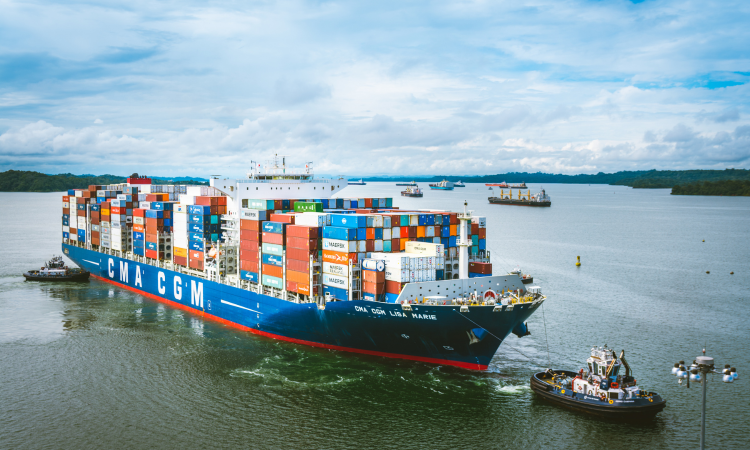In today’s fast-paced, interconnected world, international logistics is the backbone of global trade. Businesses rely on the seamless movement of goods across borders, and the need for speed, accuracy, and cost-efficiency has never been greater. Enter Artificial Intelligence (AI)—a transformative force that is reshaping how goods move around the globe.
From predictive analytics to real-time tracking and autonomous vehicles, AI is revolutionizing every facet of international logistics. In this blog, we’ll explore how AI is transforming the Global Logistics landscape, the benefits it brings, the challenges it faces, and what the future holds.
The Role of International Logistics in a Globalized World
International logistics refers to the planning, execution, and control of the movement of goods and information across international borders. This includes everything from freight forwarding and customs clearance to warehousing and last-mile delivery.
Traditionally, international logistics has faced challenges such as:
- Inaccurate demand forecasting
- Delayed shipments due to customs or route issues
- Limited real-time visibility
- Manual documentation and compliance processes
- Rising transportation and fuel costs
AI is now stepping in to address these issues with precision and efficiency.
How AI Is Reshaping International Logistics
1. Predictive Analytics for Demand Forecasting
AI uses machine learning algorithms to analyze vast amounts of historical data and current market trends to predict future demand. This helps logistics companies and retailers prepare inventory in advance, reducing the risk of stockouts or overstocking.
Example:
AI can analyze seasonal trends, political factors, and customer behavior to forecast how many units of a product will be needed in a particular region months in advance.
2. Route Optimization and Traffic Management
AI-powered systems analyze real-time traffic data, weather conditions, fuel consumption, and delivery windows to find the most efficient routes for international shipments. This leads to faster deliveries, reduced fuel costs, and lower carbon emissions.
Example:
FedEx and DHL use AI-driven route optimization to shorten delivery times and minimize delays caused by customs bottlenecks or bad weather.
3. Smart Warehousing with AI Robotics
Modern warehouses are adopting AI-powered robots and automated guided vehicles (AGVs) to improve inventory management and order picking. These systems ensure higher accuracy and faster processing, even during peak times.
Benefits include:
- Reduced human error
- 24/7 operation
- Real-time inventory updates
- Lower operational costs
4. AI in Customs and Compliance
Navigating customs regulations in international logistics is complex. AI simplifies this process by automating documentation, classifying goods accurately, and identifying potential compliance issues before they cause delays.
Example:
AI tools can analyze past shipping documents to ensure new shipments are correctly classified and avoid unexpected tariffs or fines.
5. Real-Time Shipment Tracking and Visibility
With AI and IoT integration, logistics providers can track shipments in real time, offering greater transparency to customers and partners. AI also sends alerts in case of delays or route changes, allowing proactive decision-making.
Customer Benefits:
- Real-time tracking
- Automated notifications
- Greater trust and reliability
6. Autonomous Vehicles and Drones
AI is the brain behind self-driving trucks and delivery drones that are being tested and used in certain international shipping corridors. These technologies have the potential to reduce labor costs and operate continuously without breaks.
Potential Impact:
- Lower long-haul transportation costs
- Improved delivery times in remote areas
- Safer logistics operations
7. AI-Driven Risk Management
AI tools can analyze geopolitical factors, weather patterns, and port congestion to identify risks before they impact logistics operations. These insights allow businesses to reroute shipments or adjust timelines accordingly.
Example:
If a port is expected to close due to a storm, AI can recommend an alternative port and reroute shipments in advance.
Benefits of AI in International Logistics
| Benefit | Description |
|---|---|
| Cost Efficiency | Reduced fuel, labor, and warehouse expenses through automation and optimized routing. |
| Speed and Accuracy | Faster deliveries with fewer errors in documentation and handling. |
| Increased Visibility | Real-time insights into shipment locations and statuses. |
| Scalability | Systems can handle large volumes of data and adapt to growing global demand. |
| Sustainability | Smarter routing and inventory planning lead to lower emissions and less waste. |
Challenges of Implementing AI in Logistics
While the benefits are clear, integrating AI into International Logistics isn’t without challenges:
- High initial investment in AI technology and infrastructure
- Data privacy and security concerns
- Resistance to change among traditional logistics operators
- Need for skilled workforce to manage AI systems
- Regulatory uncertainty in cross-border AI use
However, as AI technology matures and becomes more accessible, these barriers are gradually being overcome.
The Future of AI in Global Logistics
As AI continues to evolve, here are some trends that will shape the future of international logistics:
- AI-Powered Digital Twins
Virtual models of supply chains will help test scenarios and predict outcomes in real time. - Blockchain + AI
Together, they will create tamper-proof and transparent international shipping records. - Hyperautomation
Combining AI, RPA (Robotic Process Automation), and IoT to create self-operating logistics systems. - Green Logistics
AI will play a pivotal role in achieving carbon neutrality goals through efficient energy use and waste reduction.
AI is no longer a futuristic concept—it’s a present-day reality transforming International Logistics at every level. From reducing delays and costs to enhancing global supply chain visibility, AI technologies are empowering logistics companies to deliver smarter, faster, and more reliable services.
As we move into an increasingly digitized and global economy, embracing AI in Logistics is not just an advantage—it’s a necessity. Companies that invest in AI-powered logistics today will lead the global trade lanes of tomorrow. Tranznova is actively exploring AI integration and is set to implement advanced AI-driven solutions in its logistics operations in the near future.



